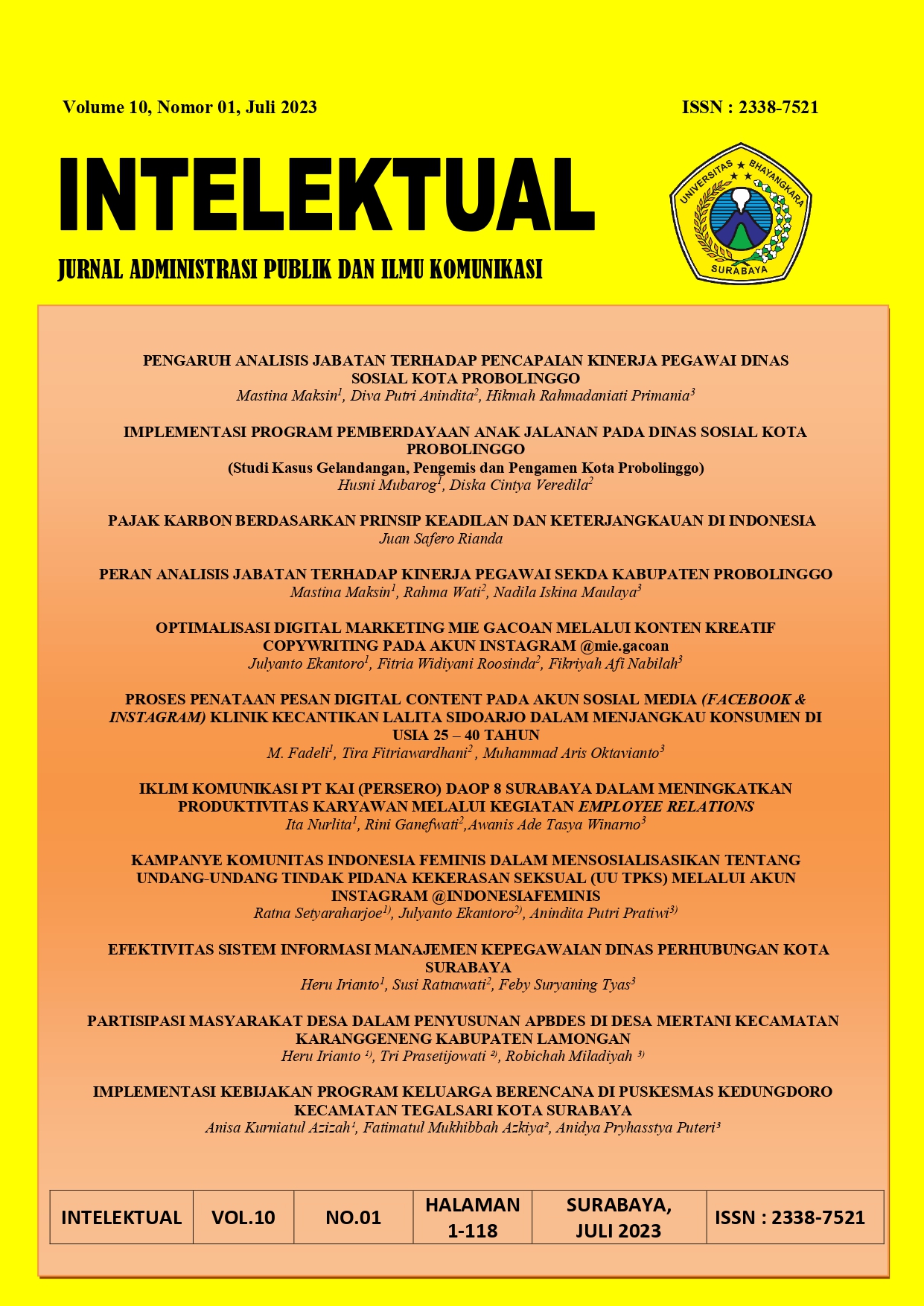PAJAK KARBON BERDASARKAN PRINSIP KEADILAN DAN KETERJANGKAUAN DI INDONESIA
Isi Artikel Utama
Abstrak
One of the reasons why implementing a carbon tax in Indonesia is so necessary is because Indonesia is one of the largest contributors to greenhouse gas emissions in the world. Indonesia has received great attention because Indonesia is known as a tropical rain forest country with considerable biodiversity. The purpose of this study is to examine and analyze the Principles and Principles, Imposition of Carbon Tax Imposition in order to create a sense of justice and affordability for the community in carrying out obligations in taxation in Indonesia and to examine the Application of Implementation of Carbon Tax Collection already based on applicable legal provisions, namely the Law law No. 7 of 2021. The method used in this study is normative legal research, namely a legal research based on document studies, namely using legal sources in the form of laws and regulations, court decisions/decree, contracts/agreement/contracts, legal theory, and the opinion of scholars. Another name for normative legal research is doctrinal legal research, also known as library research or document study. The conclusion from this research is that the implementation of the imposition of carbon tax in Indonesia is regulated in Law Number 7 of 2021. This carbon tax will be imposed on carbon emissions resulting from the consumption of goods that contain carbon emissions and/or from activities that produce carbon emissions. The basis for the imposition of a carbon tax is the amount of carbon emissions produced which will be determined by the relevant Ministry which has the authority and competence in this matter. Indonesia applies a carbon tax using the Capand-Tax scheme, which combines a carbon trading scheme with a carbon tax
Keywords: Tax, Carbon, Indonesia, Tropics
Rincian Artikel

Artikel ini berlisensi Creative Commons Attribution 4.0 International License.
Authors who publish with Intelektual: Jurnal Administrasi Publik dan Ilmu Komunikasi agree to the following terms:
- The author retains copyright licensed under Creative Commons Attribution-NonCommercial 4.0 (CC BY-NC 4.0), which allows others to remix, adapt, and expand on the author's work non-commercially, and even if someone else's new work must also acknowledge the author and is non-commercial, they do not need to license their derivative works on the same terms.
- Authors are permitted and encouraged to post their work online (e.g., in institutional repositories or on their websites) before and during the submission process, as this can lead to productive exchange, as well as earlier and greater citation of the published work ( See Impact of Open Access). Authors can archive preprints and postprints or publisher/PDF versions.

